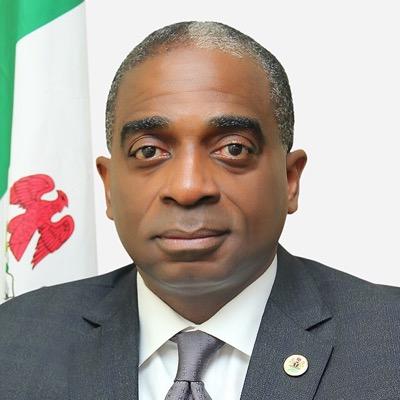
The Nigerian Export Promotion Council (NEPC) has concluded plans to establish border markets in six locations across the country as part of efforts aimed by reducing the loss of revenue by the government through informal trade.
It was learnt that the establishment of the border markets is part of the intervention programmes of the NEPC on informal trade.
Statistics from the council showed that about $12billion worth of informal exports take place at various locations in the country.
It was gathered that given the volume of informal trade along these trade routes, the council decided that the best way to check the increase in the activities of informal traders was to set up the markets.
This, according to investigations, would enable the traders carry out their business transaction under an organised environment thus generating revenue for the government.
Already, the NEPC had gone into strategic partnership with relevant stakeholders to establish warehouses in Maradi and Birini Konni in Niger Republic, while collection centres would be created in Jibia in Katsina State and Mela in Sokoto State respectively.
In the same vein, it was learnt that the NEPC and the United States Agency for International Development were currently collaborating in promoting inclusive economic growth through improved trade and transport competitiveness.
The NEPC Executive Director/Chief Executive Officer, Segun Awolowo, while confirming the development in an interview in Abuja, said that significant volumes of informal trade take place in the country.
He said, “According to independent statistics report, Nigeria’s informal trade figure for Kano axis alone is put at $14.16bn, $9.83bn and $5.34bn in 2012 and 2013 and 2014 respectively.
“These amount to lost revenue to the government. So the council is working on establishing border markets across the country to ensure the conversion of informal export trade to formal trade.”
He said the challenges faced in generating adequate revenue from oil had made it imperative to facilitate trade and non-oil exports.
He said the NEPC is also into proactive economic activities aimed at developing and promoting the non-oil export sector.
Some of them are the creation of markets for made-in-Nigeria products, exposing exporters to international markets, creation of export incentives and provision of market intelligence information.
He said if the country could effectively key into the plan of the commission in taking advantage of the opportunities in the agricultural sector, there would not be need to depend on oil revenue for survival.
He disclosed that through the zero oil plan, the commission had identified 22 priority countries as markets for Nigerian products while 11 strategic products with high financial value have also been identified to replace oil.
These products, he said, are palm oil, cashew, cocoa, soya beans, rubber, rice, petrochemical, leather, ginger, cotton, and Shea butter.
He said, “Nigeria is in need of an export revolution because we can no longer continue to rely on oil for our survival.
“We have an annual import bill of $50bn, which is financed from proceeds from foreign exchange generated from oil.
“In 2014, we earned $70bn in oil and paid $50bn as import bill. In 2015, we earned about $40bn and still spent about $50bn on importation and that is why we can’t continue to finance our imports.
“Our objective is to increase the reserves of the country through the zero oil plan and this is achievable if all stakeholders collaborate with us because we want Nigeria to survive in a world where we no longer sell oil.”
Commenting on how the country can improve the level of non-oil exports, the National President, National Association of Nigerian Traders, Ken Ukaoha, said an effective diversification strategy would help the country boost its exports.
He said, “We have for so long remained import-dependent. We have also continued to cultivate a mono product economy which is oil and our earnings from oil are presently disappointing.
“In terms of other non-oil exports, the country had still not yet put its act together. This is because diversification which should have pioneered our export has not been effective.
“As we speak today, we don’t have a trade policy in place and we don’t have an export strategy in place.”
According to him, all the strategies needed for import substitution are not in place even though there has been much talk about import substitution.
